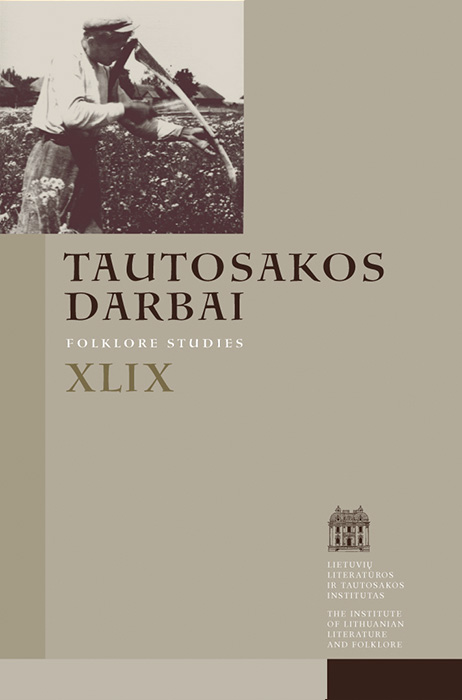Kur miežiai guli, rugiai netelpa: vienos patarlės keliai
Santrauka
Straipsnyje aptariamos galimos aplinkybės, kaip patarlės, kuri išplitusi germaniškuose kraštuose, mažiau populiari versija, bet jau lietuvišku ir latvišku pavidalu, atsirado XVIII a. šaltiniuose – lietuvių–vokiečių kalbų žodyne ir latvių kalbos gramatikoje. Ieškoma istorinių bei kultūrinių sąsajų tarp šių dviejų veikalų autorių. Parodoma patarlės Kur miežiai guli, rugiai netelpa / Kur miežu grauds guļ, tur rudzu grauds nevar gulēt (‘Kur miežio grūdas guli, ten rugio grūdas negali gulėti’) versijos sklaida XIX–XX a. Lietuvoje ir Latvijoje.
Atsisiuntimai
Nėra atsisiuntimų.
Skaitomiausi šio autoriaus(ų) straipsniai
- Lilija Kudirkienė, Apie Danutę Krištopaitę , Tautosakos darbai: T 47 (2014)
- Lilija Kudirkienė, Profesorius Kazys Grigas: žmogus tarp žmonių , Tautosakos darbai: T 47 (2014)
- Dalia Zaikauskienė, Lilija Kudirkienė, Kelias patarlių link. Paremiologę Liliją Kudirkienę kalbina Dalia Zaikauskienė , Tautosakos darbai: T 61 (2021)
- Lilija Kudirkienė, Toms Ķencis. Vācot padomju folkloru, Rīga: LU Literatūras, folkloras un mākslas institūts, 2019 , Tautosakos darbai: T 60 (2020)
